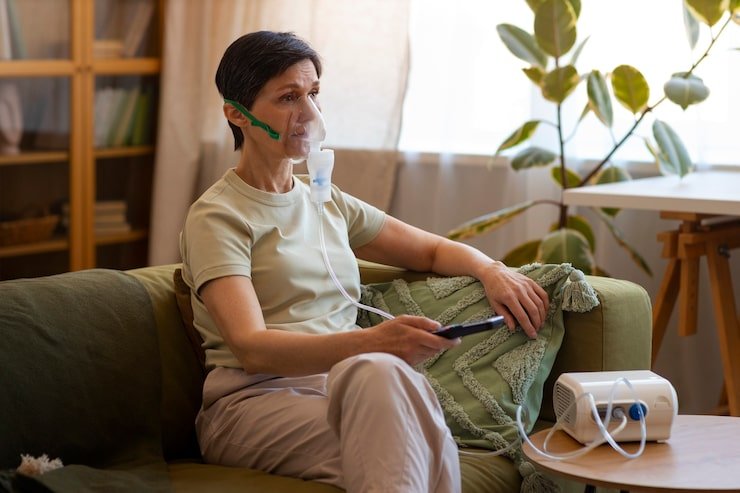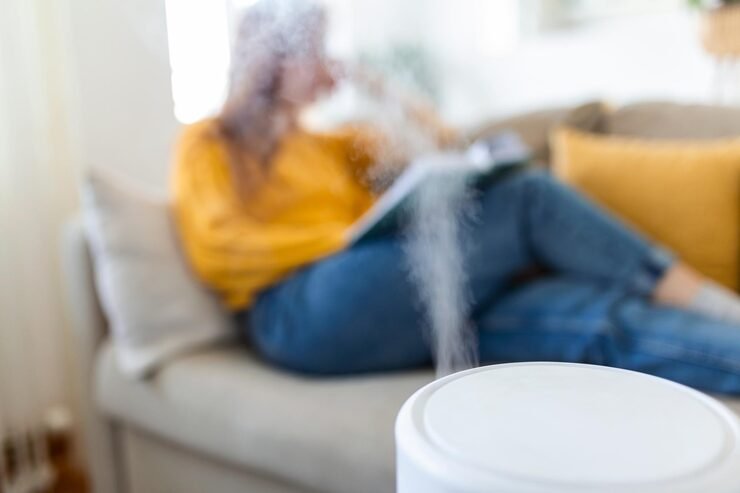The Toxicity of Air Fresheners: What You Need to Know
- admin323029
- Blog

Air fresheners are a staple in many households, used to mask unpleasant odors and create a pleasant atmosphere. However, while they may seem like an innocent way to improve the scent of your home or office, many air fresheners contain harmful chemicals that can pose serious risks to your health and the environment. In this blog, we’ll explore the hidden dangers of air fresheners and why you should think twice before using them.
Toxicity of Air Fresheners:
What’s in Air Fresheners?
Most commercial air fresheners contain a blend of synthetic fragrances and chemicals that are designed to create a lasting scent. While the ingredients vary by product, common components include:
- Phthalates: Often used to help scents last longer, phthalates are chemicals linked to hormone disruption, reproductive issues, and developmental problems.
- Formaldehyde: A known carcinogen, formaldehyde is found in some air fresheners and is linked to respiratory issues, headaches, and even cancer with prolonged exposure.
- Benzene: Found in many aerosol air fresheners, benzene is a toxic substance that can cause dizziness, headaches, and even long-term damage to the blood and immune system.
- Volatile Organic Compounds (VOCs): These compounds are released into the air and can cause a variety of health issues, including eye irritation, nausea, and respiratory problems. VOCs can also contribute to indoor air pollution.
Health Risks of Air Fresheners
Using air fresheners regularly may seem harmless, but the toxins they release can have a profound impact on your health. Some of the most common health risks include:
- Respiratory Issues: The chemicals in air fresheners can irritate your lungs, leading to coughing, wheezing, and shortness of breath, particularly in people with asthma or other respiratory conditions.
- Headaches and Migraines: Many people experience headaches or migraines after exposure to strong fragrances. The chemicals in air fresheners can trigger these symptoms, especially for those sensitive to scents.
- Endocrine Disruption: Phthalates, commonly used in air fresheners, have been shown to interfere with hormone production, which can lead to reproductive and developmental issues, particularly in children and pregnant women.
- Cancer Risk: Long-term exposure to formaldehyde and benzene has been linked to cancer, particularly in individuals who frequently use air fresheners in poorly ventilated areas.
Environmental Impact
Air fresheners not only pose a risk to human health but also to the environment. Many air fresheners are packaged in plastic and contain chemicals that contribute to indoor air pollution. Furthermore, when these products are used, they release VOCs into the air, which can have a negative effect on air quality both indoors and outdoors.
In addition, some aerosol air fresheners rely on propellants that can deplete the ozone layer, contributing to environmental damage. These chemicals can linger in the air and enter the broader ecosystem, harming plants, animals, and waterways.
Safer Alternatives to Air Fresheners
If you’re looking to freshen up the air in your home without the toxic chemicals, there are plenty of safer alternatives:
- Essential Oils: Using a diffuser with natural essential oils like lavender, eucalyptus, or citrus can help create a pleasant aroma without harmful chemicals.
- Baking Soda: This simple household item is excellent for neutralizing odors without introducing toxic substances into the air.
- Activated Charcoal: Activated charcoal is a natural odor absorber that works by trapping particles in the air.
- Houseplants: Certain plants, such as peace lilies and spider plants, can improve air quality and add a fresh, natural scent to your home.
- Vinegar: White vinegar can neutralize odors and clean the air without any harmful side effects.
How Environmental Testing Can Help
If you’re concerned about indoor air quality and the presence of harmful chemicals in your home, environmental testing can help. Through air quality testing, professionals can detect the presence of VOCs, formaldehyde, and other harmful substances in your environment. With this information, you can take steps to reduce exposure and create a healthier, safer living space.
Conclusion
While air fresheners may seem like a simple solution to improve the scent of your home, the chemicals they contain can have significant long-term health and environmental impacts. By opting for safer alternatives and utilizing environmental testing services, you can help protect yourself, your family, and the planet from the harmful effects of air fresheners.
If you’re concerned about the quality of the air in your home, consider scheduling an environmental testing service today. Our experts can assess the air you breathe and recommend solutions to help create a healthier, safer living environment.
Are you worried about the cleanliness of your space?
Let us help you! Cleaning services are our specialty, and we offer a complete range of cleaning and maintenance services. Get a free estimate!




